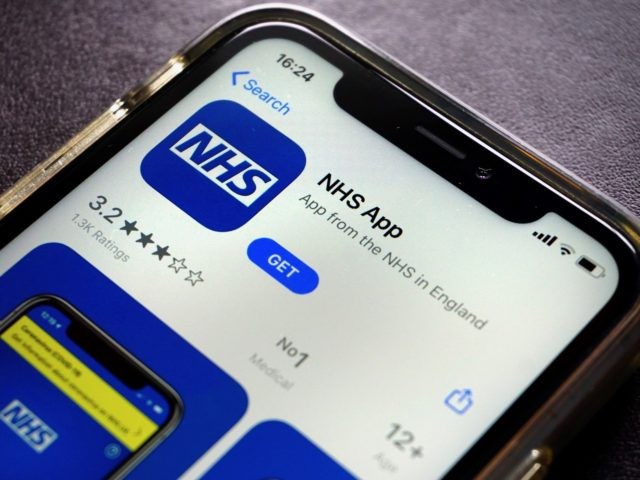Silicon Valley tech giants Apple and Google have blocked an update to the British government’s coronavirus contact tracing app from their respective app stores as the update shared the locations of users with the government, violating privacy regulations.
An update to the National Health Service (NHS) COVID-19 app was intended to be released in time with the loosening of lockdown restrictions in the UK on Monday.
The previous incarnation of the contact tracing app, which is still active on both Android and iOS devices, logs location data on a user’s device rather than it being sent to a centralised database. The app on the user’s device then compares the location data it holds against the NHS database to notify a user if an outbreak has occurred in a place they have visited.
The new version of the app would see the location data directly uploaded to the government, rather than stored and handled locally, on the user’s device.
The Exposure Notifications System FAQ joint policy from Apple and Google states that apps involved in contact tracing cannot “share location data from the user’s device with the public health authority, Apple, or Google”.
Another document on the terms and services says: “A contact tracing app may not use location-based APIs… and may not collect any device information to identify the precise location of users”.
Should the tech giants have permitted such a change, it could have opened up the door for other governments around the world to implement tracking systems to monitor the movements of their citizens. The move also allows some of the largest big tech firms to portray themselves as defenders of privacy at a time where they have suffered reputational damage on the subject.
A spokesman for Britain’s Department for Health and Social Care said per Sky News: “The deployment of the [enhanced check-in] functionality of the NHS COVID-19 app to enable users to upload their venue history has been delayed.
“This does not impact the functionality of the app and we remain in discussions with our partners to provide beneficial updates to the app which protect the public.”
“As venues begin to open up we encourage everyone who can to use the enhanced venue check-in process, which includes advising users to book a test if they attend venues where multiple people have tested positive,” the statement added.
The BBC reported that Scotland has avoided falling foul of the Silicon Valley companies, as it released a separate app — Check-In Scotland — which allows citizens to post their location history, rather than integrating it into its contact tracing app, Protect Scotland.
The Big Brother-style coronavirus regime in Britain has come under increasing scrutiny on the question of privacy rights.
This month, Conservative MP and leading Breixteer David Davis declared that the UK’s socialised healthcare system is “too incompetent” to be trusted to handle sensitive and private information.
“Every time it tries to do something that is online or involves a long-range connection it loses data. It’s happened half a dozen times in the last ten years,” Davis said.
Privacy concerns have also been raised in connection to the vaccine passport scheme being pushed by Boris Johnson’s government. The health pass has been floated for domestic use in public venues such as pubs and theatres.
In an exclusive interview with Breitbart London, the CEO of the privacy firm DeleteMe, Rob Shavell, warned in March that it will be impossible for governments to protect healthcare data if such a system would be put into place.
“Time and time again governments say that they are providing a data service to their citizens and claim that it will be protected, but what we see is this information ending up in data profiles available on Google searches,” Shavell said.
Follow Kurt Zindulka on Twitter here @KurtZindulka

COMMENTS
Please let us know if you're having issues with commenting.